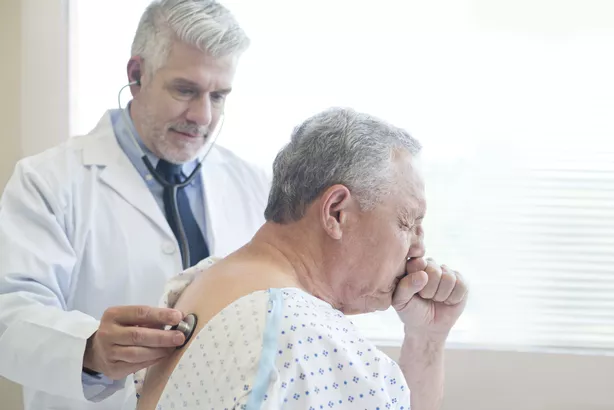
June is Men’s Health Month, a time when we focus on raising awareness of preventable health issues to encourage men to take a more active role in disease prevention and early detection and treatment.
Take this opportunity to remind yourself or the men in your life that cancer risks can be reduced through healthy practices and regular checkups. Here are the five most common cancers in men and some steps men can take to reduce their risk.
Prostate cancer
The likelihood of developing prostate cancer – the highest risk of cancer in men – increases with age. Most prostate cancer is detected in men age 65 and older, and African-American men are more likely to develop prostate cancer than white men. Roswell Park Comprehensive Cancer Center follows the guidelines for early detection of prostate cancer established by the National Comprehensive Cancer Network. These guidelines encourage men interested in early detection to undergo baseline screening at age 45 for comparison with future tests. The results of this basic test will determine the recommended frequency of screening examinations. For African Americans and men with a family history of prostate cancer, annual screening should begin at age 40. Evaluation of a prostate cancer screening test result should be done on a case-by-case basis, taking into account the man’s age, life expectancy, family history, race, and previous screening results. Men are encouraged to discuss the pros and cons of a screening regimen with their doctors.
Lung cancer
Smoking is the leading cause of all lung cancers. Quitting smoking or simply never starting is the best way to reduce your risk. If you or a loved one needs help quitting, call the NYS Smokers’ Quitline at 1-866-NY-QUITS (1-866-697-8487). Lung cancer screening using a low-dose CT scan is also available for people with certain risk factors, including those aged 50 and older who have smoked in the past 15 years and have a smoking history of more than 20 packs/year.
Colorectal cancer
Colorectal cancer (cancer of the colon or rectum) is the fourth most common cancer in the United States and is often preventable through screening. It is highly treatable when caught early, but remains the second leading cause of cancer-related death in the US. Each year, more than 27,000 men die of colorectal cancer.
For those who have no symptoms and are considered “average risk,” Roswell Park recommends colonoscopy starting at age 50. African Americans are recommended to start screening earlier, at age 45. There are other screening tests available, so talk to your doctor about which one you should schedule.
Quitting smoking, limiting your consumption of red meat and alcohol, avoiding processed meats (such as hot dogs, deli meats, bacon, or sausage), regular exercise, and weight control are all ways to reduce your risk of colon and rectal cancer.
Bladder cancer
Men are four times more likely to be diagnosed with bladder cancer than women. While a bladder screening test is not yet available, research has shown a link between a sedentary lifestyle and the risk of this and other types of cancer.
“You don’t have to run marathons to reduce your risk of cancer, but you do have to do something—even small adjustments like taking the stairs instead of the elevator, walking around the block a few times at lunchtime, or parking your car. away from the store when you go to the supermarket,” says Kirsten Moysich, Ph.D., MS, distinguished professor of oncology at Roswell Park Comprehensive Cancer Center.
Melanoma
Melanoma is a serious type of skin cancer that develops in the cells that make melanin, the pigment that gives the skin its color. By age 65, men are twice as likely to develop melanoma as women, and three times more likely to develop it by age 80. You must tell your doctor if you notice any changes in the size, shape, or color of a mole or freckle, if you have sores on your skin that do not heal, or if you develop a new mole or lump under your skin. Screening can begin with a complete skin self-examination every month, an especially important habit to follow if you have a family history of melanoma. When melanoma is detected and treated early, the cure rate is almost 100%.
To reduce your risk, practice sun protection by avoiding the midday sun between 1 p.m. and 4:00 p.m. In the sun, wear wide-brimmed hats, long-sleeved shirts, and sunglasses, and use broad-spectrum sunscreen with SPF 30 or higher.
What else can you do to reduce your risk of cancer?
- Stay away from tobacco.
- Get and stay at a healthy weight.
- Get moving with regular physical activity.
- Follow a healthy eating pattern that includes plenty of fruits, vegetables, and whole grains, and that limits or avoids red/processed meat and highly processed foods.
- It is best not to drink alcohol. If you drink, don’t drink more than 2 drinks a day for men.
- Protect your skin.
- Know yourself, your family history, and your risks.
- Get regular check-ups and cancer screening tests.
